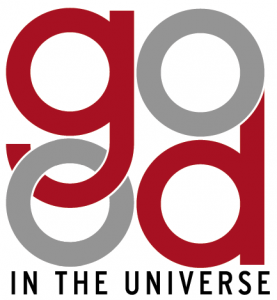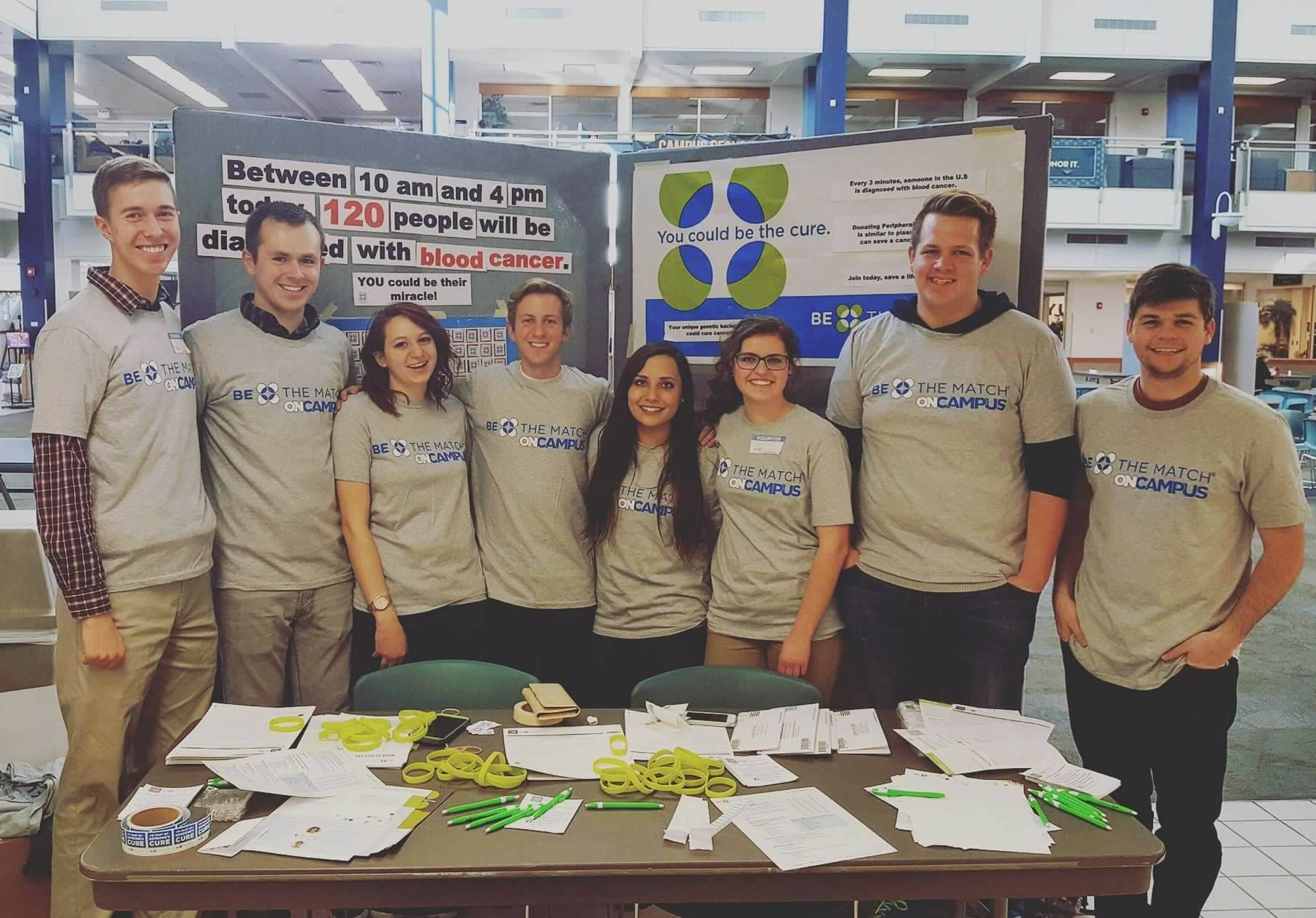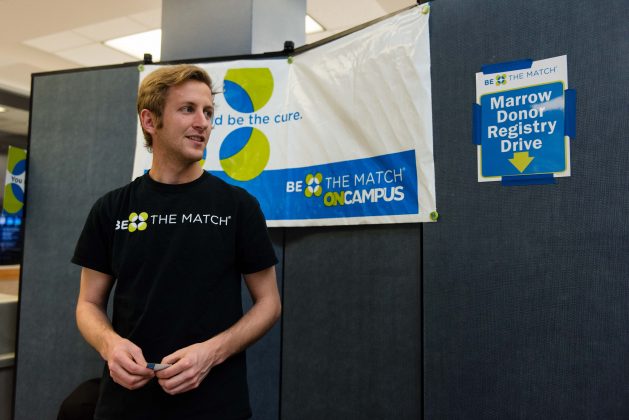 Student members of BYU Be the Match joined together to gather names of potential bone marrow donors for the National Bone Marrow Registry. The registry matches people suffering from diseases such as leukemia and lymphoma with people who can donate bone marrow necessary to their survival.
Student members of BYU Be the Match joined together to gather names of potential bone marrow donors for the National Bone Marrow Registry. The registry matches people suffering from diseases such as leukemia and lymphoma with people who can donate bone marrow necessary to their survival.
BYU student David Fuhriman said BYU Be the Match is fairly new; its first potential donor drive was held in Winter 2015.
“We’re literally saving people’s lives in a way that not everyone can,” Fuhriman said.
Fuhriman said donors are matched to patients by determining immune type. Like a fingerprint, immune type is specific. The registry list compares patients throughout the U.S., and it is common to have few matches with potential donors.
“Some people only have one match on the national registry,” Fuhriman said. “Some people have a couple they can choose from, and some people have zero matches.”
BYU student Trevor Hoggan said becoming a potential donor is simple.
“It takes three minutes or so,” Hoggan said.”You swab your cheek, put it in an envelope, write down your name and contact information, and send the envelope off.”
According to Hoggan, BYU Be the Match sends off all potential donors’ envelopes to the National Bone Marrow Registry.
BYU student and BYU Be the Match co-president Bradley Knabe said there are two methods for bone marrow donations. One method requires doctors to give the donor an anesthetic and take out the bone marrow from the base of the back. Knabe said this is a fairly quick outpatient procedure, but the second method is less invasive and even easier than the first.
“The more common way is called PBSC, which stands for peripheral blood stem cells, and that is similar to donating plasma,” Knabe said.
Knabe said this donation method consists of being hooked up to a machine similar to a plasma machine. The machine takes the stem cells out of a donor’s blood and inserts the blood back into the body, giving donors an easy way to save someone’s life.
Knabe said he joined the club because of his BYU professor Julianne Grose. Grose wasn’t able to help a family member who passed away because of the lack of donor matches. Grose later became the only match to an 11-year-old girl with leukemia.
“I felt like I was on cloud nine knowing I could give the family the hope we so desperately wanted,” Grose said.
Unfortunately, the 11-year-old passed away before a donation could be made.
Grose said she hopes those with a desire to make a difference and save lives will think about joining the National Bone Marrow Registry.
“The more people we have in the registry, the greater the likelihood there is a match for someone,” Grose said.
Knabe said BYU Be the Match set a goal of 1,000 new names on the National Bone Marrow Registry in the 2017-18 school year.










